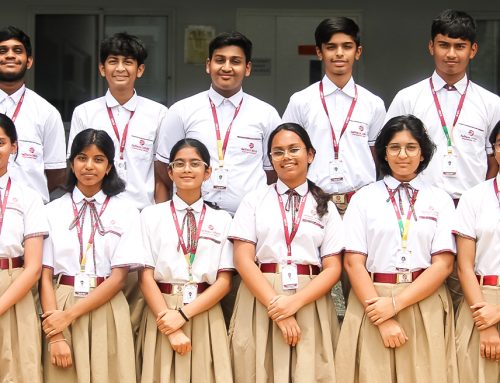Introduction
In the fast-evolving education landscape, International Schools and CBSE schools are constantly seeking fresh ways to make learning more engaging, interactive, and fun. One powerful approach is to integrate educational games into everyday study routines. When done right, games help students in International Schools and CBSE schools retain concepts better, reduce stress, and develop a love for lifelong learning.
In this post, we explore several kinds of games (digital, board, and classroom) that can be incorporated by teachers or parents in International Schools and CBSE schools to make studying enjoyable.
Why Use Games in International Schools & CBSE Schools?
Before we dig into examples, here are some compelling reasons why games belong in the curricula of both International and CBSE schools:
- Increased engagement: Games capture attention in a way standard lectures often can’t.
- Active learning: Students actively participate, rather than passively receive information.
- Immediate feedback: Many games provide instant feedback, helping learners correct mistakes quickly.
- Intrinsic motivation: Students often want to “play just one more round,” reinforcing repetition without boredom.
- Social and emotional skills: Many games require collaboration, negotiation, strategy, and perseverance skills valued in International and leading CBSE schools.
By embedding games in classroom or homework settings, International and CBSE schools can transform rote study into dynamic exploration.
Types of Games That Work Well in International Schools & CBSE Schools
Here are categories of educational games that are particularly effective. Each one can be adapted to different grade levels, curricula, or subject matter.
| Game Type | How to Play / Use | Why It’s Great for International Schools & CBSE Schools |
|---|---|---|
| Quiz or Competition Games | Play quiz games using tools like Kahoot!, Quizizz, or Quizlet Live. Teachers can make fun question rounds based on lessons. | Makes learning exciting! Helps students review topics, test knowledge, and stay motivated with scores and leaderboards. |
| Flashcard Games | Use apps like Memrise or Anki, or make your own flashcards with words, formulas, or facts. | Helps students remember vocabulary, dates, and formulas. Easy for both CBSE schools and International Schools. |
| Escape Room or Puzzle Games | Turn your class into an “escape room.” Students solve puzzles from subjects like math, science, or English to unlock clues. | Builds teamwork and problem-solving skills. Makes learning fun in both International and CBSE schools. |
| Role-Playing or Simulation Games | Students act as real-life figures like scientists, freedom fighters, or world leaders to learn history or current events. | Helps students understand topics deeply by “living” them. Popular in International Schools and creative CBSE schools. |
| Board or Strategy Games | Play games like Scrabble, Codenames, or Timeline, or create your own classroom board games. | Improves logic, vocabulary, and teamwork. Great for breaks or club activities in CBSE and International Schools. |
| Coding or Logic Games | Try coding games on Lightbot, Code.org, Osmo, or Scratch to solve puzzles and build mini projects. | Builds logical thinking and creativity. Perfect for tech learning in International and CBSE schools. |
| Memory or Matching Games | Match cards with related pairs (like a word and its meaning or a formula and its compound). | Simple and fun! Helps students revise quickly in both International and CBSE schools. |
Sample Game Ideas Tailored for International & CBSE Schools
Fun Game Ideas You Can Try in Class or at Home
1. Formula Adventure (Math / Physics / Chemistry)
Create a fun board game with stops along the way. At each stop, students solve a formula or answer a simple question. You can also add “power-up cards” like skip a question or get a hint. It’s a great way for CBSE school students to prepare for exams and for International School students to understand concepts better.
2. Historical Time Travel Escape Room
Make groups and imagine you’re stuck in a time period like the Mughal era or World War II! To “escape,” you have to solve puzzles like matching dates, finding clues, or decoding maps. This game helps students remember history lessons more easily in both CBSE and International Schools.
3. Vocabulary Duel
In English or language classes, pair up students and give them word cards. One student gives clues, and the other guesses the word. You can even turn it into a class tournament! This helps improve reading, writing, and speaking skills in both CBSE schools and International Schools.
4. Science Lab Simulation Game
Try using online science games or virtual labs (like PhET). Students get small “missions” such as balancing a chemical equation or building a simple electric circuit. You earn points for doing it right and fast! International Schools often use these tools, and CBSE schools can also use them for extra practice.
5. Math Treasure Hunt
Hide math questions around the classroom or school. Each answer gives a clue to the next spot, and the final clue leads to a “treasure.” It’s a fun way to practice math in both CBSE and International Schools.
6. Quiz Relay
Divide the class into teams. The first student answers a question and then passes it to the next teammate for the next one. Each correct answer gives points. It’s perfect for CBSE exam revision and also works great for International Schools that like team challenges.
Best Practices When Integrating Games in International & CBSE Schools
To ensure that games don’t become mere distractions, follow these guidelines:
Tips to Use Games the Right Way in Class
1. Match Games with What You’re Learning
Make sure every game is connected to the lessons in your CBSE syllabus or the topics taught in International Schools. Games should help you learn something from your subjects, not distract you.
2. Keep Games Short and Fun
Games that last 10 – 20 minutes are perfect. If they go on too long, students might get tired or lose focus.
3. Talk About What You Learned After Playing
Once the game is over, discuss the answers, mistakes, and what you could do better next time. Talking about it helps you remember the lesson better.
4. Try Different Types of Games
Don’t stick to just one kind of game! Mix it up, play on computers, in groups, alone, or with physical games so everyone stays interested.
5. Give Rewards in a Smart Way
You can use points, badges, or class prizes to make games exciting. But remember, the goal is to learn, not just to win. Focus on improving yourself each time.
6. Let Students Make Their Own Games
Encourage students to create their own quizzes or board games based on what they’re studying. This is a great activity in both International and CBSE schools because it helps students learn by teaching others.
7. Use Games to Check Learning
Teachers can use short, game-style quizzes to test what students have learned. It’s a fun and stress-free way to see how everyone is doing in both CBSE and International Schools.
Conclusion
In today’s classrooms, learning doesn’t have to be boring or repetitive. By integrating games into education, International Schools and CBSE schools can create environments where curiosity thrives and learning feels like play. From quizzes and simulations to treasure hunts and coding challenges, these activities spark creativity, collaboration, and confidence among students.
At Sadhana Infinity School, we believe education should be both meaningful and enjoyable. By blending academic excellence with playful learning experiences, we prepare students not just to score high, but to think critically, solve problems, and love the process of learning. After all, when studying becomes a game, every child becomes a winner.






